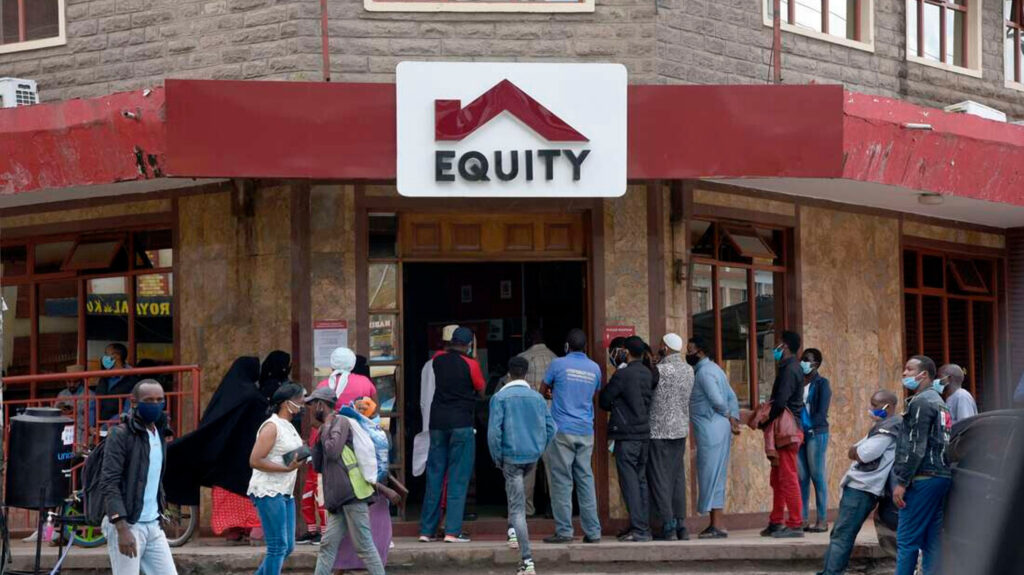- The Daily Brief, by The Kenyan Wall Street
- Posts
- KCB Bets on Pesapal
KCB Bets on Pesapal
Kenya's #1 newsletter among business leaders & policy makers


Newsletter Sponsor
Happy New Month👋🏽 from The Kenyan Wall Street.
In this Monday morning brief: KCB’s latest investment, why the NSE is breaking records, and how the cost of tomatoes affected your shopping basket in October.
KCB Acquires Minority Stake in Pesapal

Banking giant KCB Group has signed a deal to acquire a minority stake in Pesapal Limited, one of East Africa’s pioneer digital payments solutions providers, just months after it acquired a majority stake in another fintech.
Founded in 2008 by Agosta Liko, Pesapal has operations across East Africa and is regulated in Kenya, Uganda, Tanzania, Rwanda, and Zambia.
It provides Pesapal Sabi POS, a countertop PDQ machine that processes card and Mpesa payments in local and international currency.
The investment is the latest in a series of M&As by KCB as it seeks to cement its foothold in digital payments solutions, as well as in traditional banking across the region.
“The investment sets the stage for development of innovative payment and other related solutions for Kenya’s small and microenterprises enhancing value for shareholders of both Pesapal and KCB,” the lender said in a statement signed by Bonnie Okumu, the Group General Counsel and Company Secretary.
In addition to the fintech acquisitions, KCB has also acquired a bank in the DRC and sold National Bank to Access Bank in the last few years. It has also been on a hiring spree as it seeks to improve its bet on digital solutions.
In May 2025, for example, the lender hired Mark Mwongela Ngungi as Group Director Strategy & Innovation. Ngungi had previously worked as Regional Director, Middle East & Africa, at global payments company PayPal. He had also served as Pesapal’s Group CEO between 2018 and 2022.
The Pesapal deal is still subject to approval by the Central Bank of Kenya.
Investor Wealth on the NSE Surges by Ksh 1 Trillion in 10 Months

By Harry Njuguna
Nairobi Securities Exchange (NSE) is witnessing its most powerful rally in over a decade, with investor wealth soaring by more than KSh 1 trillion since the start of the year. The total market capitalization has catapulted from KSh 1.94 trillion in January to KSh 2.97 trillion as of October 31, a staggering 53% gain that signals a robust recovery from two consecutive years of steep losses. The recovery is broad-based, with all major indices posting record or multi-year highs.
Read the story here »»»»»
More in Markets

For up-to-date market insights and data from the NSE, join our Whatsapp channel here »»»»»
October Inflation

By Fred Obura
The cost of living in Kenya edged up slightly last month as prices of key household items and electricity rose, even though staple foods like maize flour got cheaper. Fresh data from the Kenya National Bureau of Statistics (KNBS) shows that inflation stood at 4.6%, unchanged from September, reflecting modest price increases in the food, transport and housing categories. The Bureau said the price of tomatoes jumped by 1.2% in October alone, pushing the average cost to KSh87.88 per kilo, up from KSh64.01 a year earlier — a 37% surge. Read More »»»
On Your Watchlist
Keep up with what’s happening on our X and LinkedIn pages. Stay updated with the latest financial news on our website The Kenyan Wall Street.




